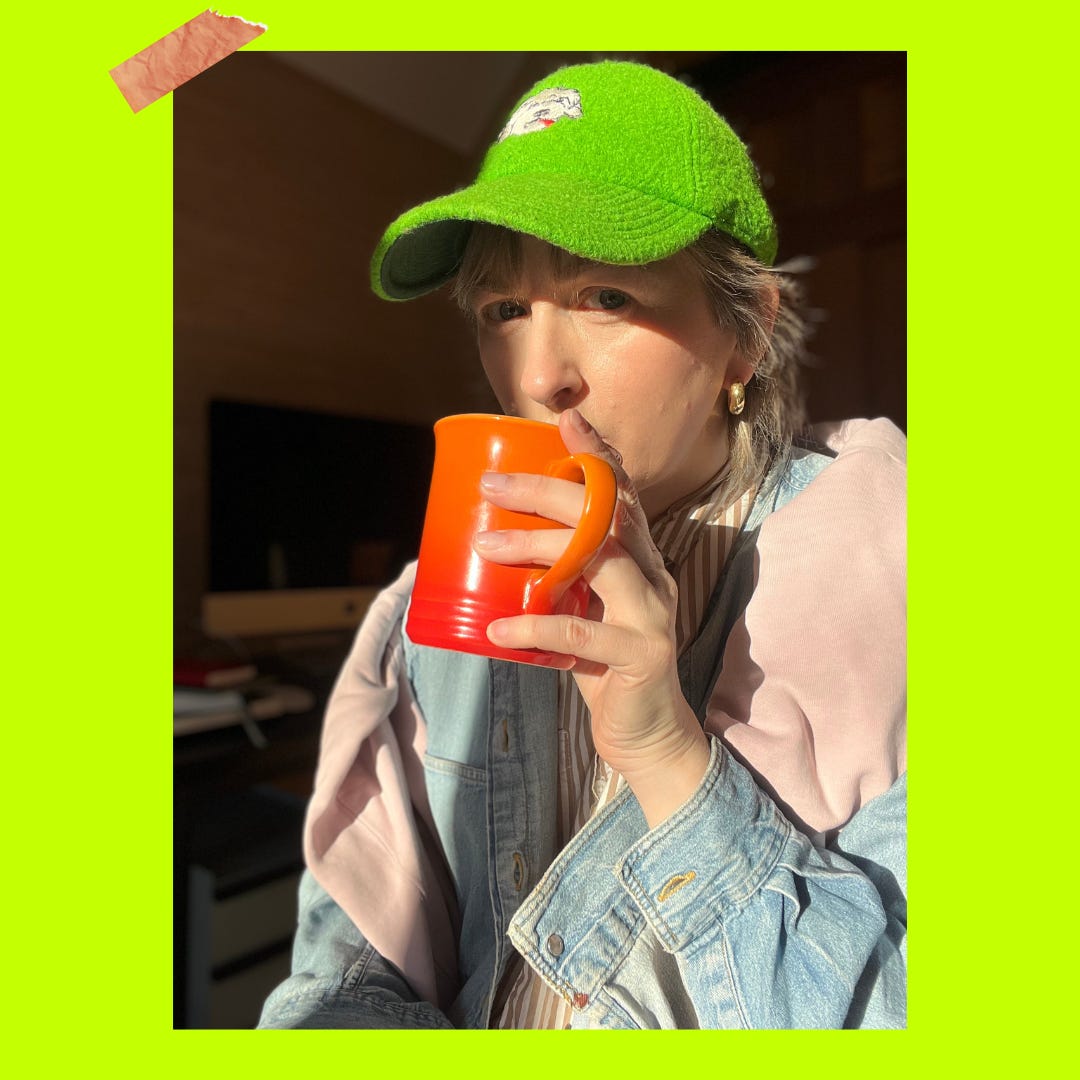Laid Off: And No Longer Applying To Online Job Applications
“My background is too unique, those resume-reading devices throw me into the garbage.”
Laid Off is the coolest place on the internet to talk about being laid off. Wanna partner? Have a tip? Hit reply.
Paid subscribers get access to:
The Laid Off Discord 💬
Laid Off Trend Reports 📈
The Pen Pals program 📫
…and the warm fuzzies for supporting independent media 💖
This is a reader-supported publication and I appreciate you.
In today’s issue, I talk to Kel Rakowski, founder of Lex and most recently Work Unseen, on why traditional resumes are outdated.
There are 700+ people in the Laid Off Discord and one of the most recurring topics, by far, is how shitty the job application process is. It’s endless hours of tweaking resumes and cover letters, applying to hundreds of jobs, and getting immediately rejected by an automated email that ran your application through tracking software.
And it’s not just perfecting their resumes for human eyes and machines, people have been asked to take Enneagream personality tests and IQ tests, to share their high school GPA and SAT scores, to do a ton of unpaid assignments, and are often ghosted.
There’s a lot to be desired in the current screening and interviewing process, which is why I’m always intrigued when someone’s actively trying to shake things up. It’s how I first stumbled upon Kel Rakowski, the creator of Work Unseen, a newsletter focused on reinvention and unconventional paths in life and work.
Kel was laid off from her role as Digital Photo Editor at Fast Company in June of 2014. She had worked there for a year and a half.
At the time, Fast Company was restructuring the creative department after bringing on a new Creative Director. She was photo editing the website Co.Design.
She doesn’t remember quite how they handled layoffs — it was over a decade ago now — but she recalls her manager calling her to tell her the news.
“I had just gone through a break-up of a 7-year relationship that paired with me coming out as gay,” she said. “And then my rent was raised. I think I told my landlord but she didn't care. Raised the rent regardless.”
In the years following her layoff, Kel founded Lex, a community-driven LGBTQIA+ app to find queer friends, dates, groups, and events. It reached 1 million downloads, secured $7.2M in funding, and earned recognition as the App Store’s Top App for Pride, before it was acquired.
Now, she’s building Work Unseen to help founders, creatives, and non-techies with career strategy. She just launched the Work-Pager, a customizable one-pager described as “better than a resume, chicer than LinkedIn, and entirely yours.”
She’s also taking herself off the mainstream market, meaning: she’s no longer applying through online job applications.
“My background is too unique, those resume-reading devices throw me into the garbage.”
When did you know you wanted to start your own company? How did the layoff bring clarity to that vision?
I actually kind of was in the same layoff situation right before I raised money to build Lex the company. I was working at another design magazine, Metropolis - this time as photo director. The magazine was purchased and another “restructuring” was in the works. They didn't need a photo director, so I was about to lose this job too. But I quit first. It was a perfectly timed situation, and i'm fortunate for that. I went straight to working on Lex full-time.
The laid off to founder pipeline is something I'm seeing more and more of — why do you think that is?
A lot of us are working full-time jobs with ideas bubbling in our head. Or we have a side hustle. And that layoff is a way out and a chance to try ourselves. Maybe it feels like fate talking. It's classic founder mentality – to make the best out of a bad situation or take a setback and make it work for them, etc.
When you knew you wanted to start your own thing, what was the first step you took toward making that a reality?
Asking people if they wanted it. If they said yes and took action to participate in my idea, I was onto something. That is the first step, talk to people. People First.
Why do you think resumes are outdated?
I have to say I'm kind of obsessed with resumes. Maybe it's the type-first design, the order, the dry list. Over the summer I fully immersed myself in creating and writing the perfect resume, in the most classic resume formats. I was revising resumes for friends for fun. But I think that led me to think of what's not actually working. Because no one is looking at my resume and being all-that-impressed. Resumes are too much a limited timeline, a listicle and not getting to the beating heart behind the page.
When did the idea for the Work-Pager come to you?
Imagine a one-page snapshot that’s all about you—a definitive overview of your skills, the value you bring to a team, and the type of role you’re ready to step into. A Work-Pager is a simple, customizable tool that highlights your worth in a way that’s clear, stylish, and completely yours.
I'm currently looking for a new role and in that search I was crafting the perfect networking email. I've been pushing people for months to use Notion to build their personal websites. It's free and simple. I decided to turn my personal website into a place to highlight my results, what I'm best at, and what I'm looking for in the next role. It's a fuller bodied picture of who you are. A resume falls flat. On Work-Pager I pulled from a lot of different ideas to create the structure. A part of the process is gathering feedback from former colleagues to provide an in-depth look at how you work and relate to others.
I actually discovered you through some of your job searching tools and shared them with the Laid Off Discord. Have you noticed any trends or patterns in the job hunt world with the rise of layoffs? How do your tools aim to help?
All I know is the competition is fierce. I decided to completely take myself off the mainstream market, meaning - I am not applying to roles via online application. My background is too unique, those resume-reading devices throw me into the garbage. I don't take it personality, I reframe, "I'm too visionary for that role." My new strategy: I'm sticking close to my network and meeting people IRL to find my next role. My tool is Work-Pager and some on the ground coffee-dates. It's a concise one-page website template built with Notion that says: this is who I am. This is what I’ve done. And This is what I can do for you.
In your opinion, what's the future of job hunting? Of resumes? (Or, what should we leave in the past)
I think there's a big unlock that's needed to re-work the entire hiring process. On both sides (hirer/seeker), for both sides. It's completely outdated, there's so much more depth to describing a role than just a job description, the same for hiring talent. The entire dance really could use a shake up. The interviews, the resumes, the wait times, the online assessments, the negotiations - I'm not raising my hand to fix but I think there's a big opportunity to completely revise this process so that both sides are left with better results. I'm not sure it's possible, but as a founder, a dreamer, I can't help myself.
💻 GIVEAWAY: Kel is offering one free 60-minute “Work with Kel” session (valued at $250) to Laid Off readers. In this session, she’ll help you refine your Work-Pager to make it stand out.
She’ll post details in the Substack Chat later today, so stay tuned.















I completely gave up and just write books, do freelance, have a Substack called Untrickled and write on Medium now. Fuck the corporate system. It’s not serving most of us.
The realest shit I’ve ever read.